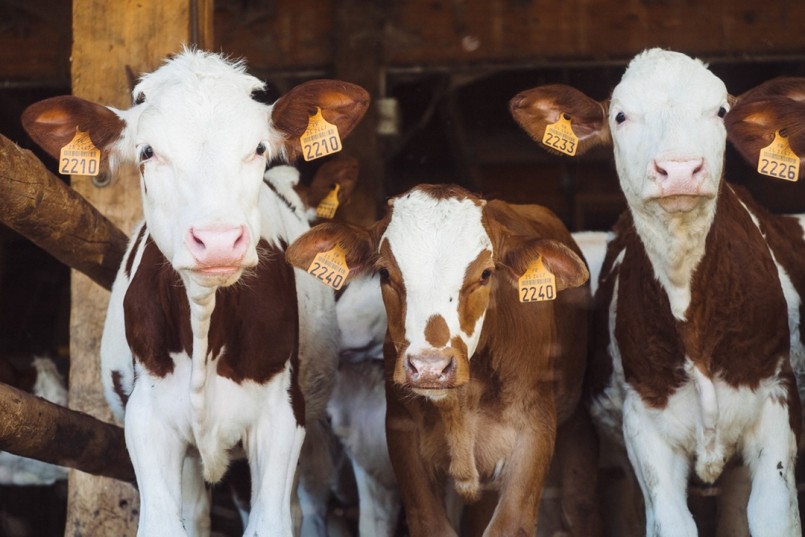Environment
What no one knows about agriculture and the environment

What no one knows about agriculture and the environment
According to the United Nations Environment Programme’s international panel of sustainable resource management, a global shift toward veganism is essential to stabilizing the world in regard to world hunger, anticipated fuel shortages and devastating climate change. Although multiple factors play into these issues, such as emissions from various forms of world travel, energy and resource consumption, some world authorities have noted animal agriculture as the clear apex of the problems—but there is significant controversy and disagreement surrounding the subject. Here’s what people are missing about agriculture and the environment.
The figures are available
Scientists, professors, advocates, former cattle-handlers and authors interviewed by Kip Anderson in Leonardo DiCaprio’s Cowspiracy shared staggering figures related to the topic, including a claim that animal agriculture is the top “leading cause of resource destruction and environmental degradation on the planet.” Further assertions stated that animal agriculture’s emissions are 86% more destructive than all forms of the world’s transportation combined, create 65% of the world’s nitrous oxide (a “gas with a global warming potential of 296 times greater than carbon dioxide”), use 30% of the world’s water, up to 45% of the world’s land, and causes up to 91% of the Brazilian Amazon destruction. Further figures insist that animal agriculture requires 2,500 gallons of water to raise a mere one pound of beef and is responsible for at least 51% of human-caused climate change overall. These destructive occurrences between agriculture and the environment take place partly due to the massive amount of deforestation necessary to create grazing land worldwide and the excessively water-intensive process utilized for the production of grains and other water consumption necessary to keep and feed various livestock.
In addition to agriculture and the environment, ocean fishing also contributes to the dilemma to the tune of 28 billion sea creatures being pulled from the water in massive drift nets over last year alone, without sufficient time given in between sweeps to reproduce themselves. Astoundingly, for every one pound of desired fish caught, up to five pounds of untargeted sea animals (labelled “by-kill”) are also caught, such as whales, sharks, sea turtles and dolphins. Representatives for Sea Shepherd Conservation Team stated that if current fishing trends continue, the ocean will be fish-less by the year 2048, although this date has been debated by others.
But it seems no one is listening
Yet, Greenpeace, Sierra Club and other prominent environmental organizations do not include these issues as vital in their advisory materials or on their websites. (Some agency representatives for these organizations refused to be interviewed and others downplayed the significance of the claims). There are arguments as to why this conspicuous avoidance is occurring, such as agency concern over potential loss of membership and fundraising sources, or fear of the power of the animal agriculture industry. Regardless, one would guess with these figures being presented to the world’s informed citizens on any reporting venue, we could expect to see at least a slight shift toward vegetarian or vegan diets. Yet most meat eaters refuse to commit to even one meatless day per week. Although the meat industry is arguably immensely powerful within the U.S., influencing policy even to the point of changing the verbiage on the USDA’s dietary 2016 guidelines, there may still be other elements involved. Perhaps human psychology, for example, is partly to blame. Denial is a favorite psychological mechanism for those who are uncomfortable with observed events, while refusal and rebellion are cheered as assertions of freedom for others. According to a study completed by Netherlands’ Delft University of Technology, only 12% of Dutch and 6% of American participants in the study acknowledged eating less meat as likely to lessen the effects of climate change, even after being provided significant peer-reviewed evidence confirming it as factual. Scientific American’s opinion piece on the subject featured Annick de Witt, a co-author of the study, who shared her perspective on why people are hesitant to decrease meat consumption in favor of more climate-friendly alternatives. She states, the “pointing-the-finger approach” may be effective for some in creating environmentally beneficial behavior change, but others are adversely effected by “guilt, shame and stigmatization,” especially “among committed carnivores.” She suggests a more “inspiring and empowering narrative about climate change and the impact of our diets, speaking about better health, weight control, creativity in the kitchen and animal welfare in addition to the environmental benefits” in order to bring these folks into the conversation more inclusively.
However the dietary shift occurs, it will undoubtedly bring mostly positive change if one considers the figures about agriculture and the environment presented in the aforementioned studies. Although many humans have long enjoyed a love affair with eating meat and equate it with a “real meal” or as a sign of affluence, there are plenty of delicious, nutritious alternatives available at this point in history, and starting with as little as one meatless day a week won’t hurt anyone—but can significantly reduce the negative impacts of animal agriculture on our world.





0 comments